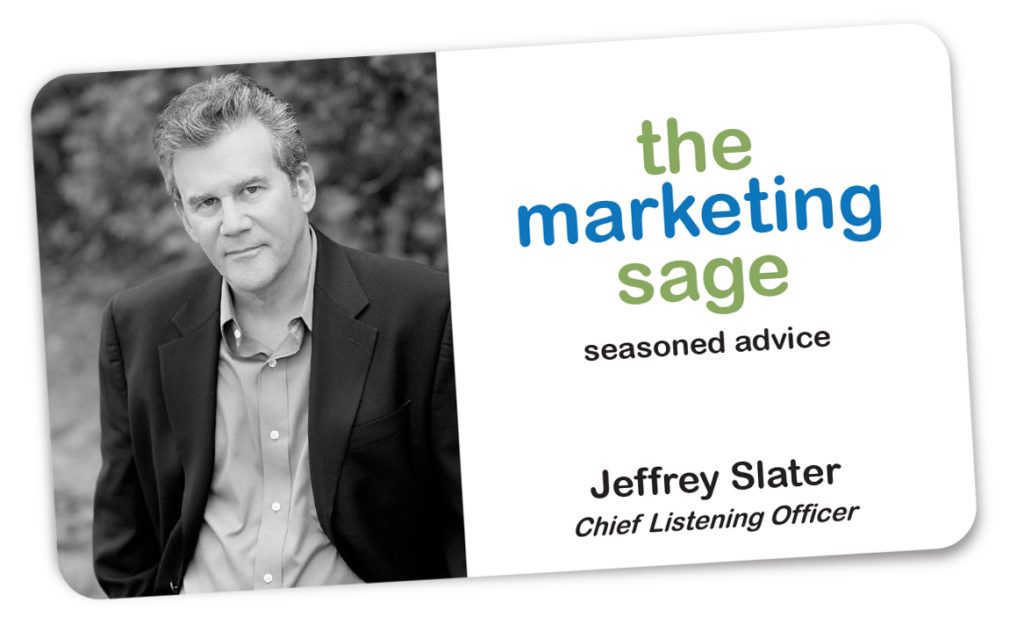The C-Suite Executives Often Forgets How Marketing is like Tending A Garden.
When working with C-suite executives on marketing strategy and tactics, I often encounter fundamental misconceptions.
These misunderstandings can lead to misaligned expectations and underperforming marketing campaigns. Douglas Burdett, the podcast host of The Marketing Book Podcast, often jokingly says that many C-Suite executives think of marketing as the “arts & crafts department to make things pretty.”
Oy vey.
I love to use the gardening metaphor to help remind members of a C-Suite, what marketing is and isn’t.
Here are some of the most misunderstood ideas about marketing from C-suite executives and my insights on how to address them:
“Marketing is just about creating flashy ads and social media posts.”
While creating visually appealing ads and social media content is undoubtedly a part of the tactics used by marketing, it is only one piece of the puzzle. Marketing is about understanding your target audience, developing a strategy to reach and engage them, and measuring the success of your efforts. It involves market research, analyzing data, and constantly testing and optimizing your approach. But marketing isn’t one tactic or channel for communication. You don’t just turn over the soil in a garden and expect to harvest fruit.
You need to do many things to ensure your seeds grow.
“Marketing is a cost, not an investment.”
Many C-suite executives see marketing as a necessary evil – something that must be done, but not necessarily a valuable use of resources.
This couldn’t be further from the truth. Marketing is an investment in the growth and success of your business. A strong marketing strategy can help you acquire new customers, retain existing ones, and increase brand awareness and loyalty. When done well, marketing can generate a strong return on investment. And a strong brand can create a multiplier of value when sold.
Yes, advertising can be cut for a quarter, but a systematic reduction of marketing spending will erode brand awareness. It is easy to forget a brand like IHOP or Dunkin when they start cutting their marketing spending, and they aren’t top of mind.
I have been part of many brand and company sales. When a company sells for an unusually high multiple, it is because the brand has unusual secondary meaning in the marketplace. See, for example, the Slim Jim brand, which sold for a remarkable multiple because the brand had iconic status and awareness.
If you want to create meaningful value, you can’t occasionally water the garden.
“Marketing is just about selling.”
While the goal of marketing is often to drive sales, it is not solely focused on that.
Marketing is also about building relationships with your customers and establishing your brand as a trusted and reliable source in your industry. This involves educating your audience, providing valuable content, and solving their problems. You can create long-term customer loyalty and advocacy by taking a more holistic marketing approach. Sales matters, but building a deep community you serve is where your business becomes a force multiplier.
Fertilizer in a garden ensures that your seeds have the nutrients needed.
“Vanity metrics can measure marketing success.”
Vanity metrics, such as open or CTR (click-through rates), social media followers, and website traffic, can be tempting to track because they are easy to measure and often show an initial increase when a new campaign is launched.
However, these metrics alone do not paint a complete picture of marketing success. It’s also important to track more meaningful metrics, such as leads generated, conversions, and customer lifetime value, to get a true sense of the impact of your marketing efforts. One of my favorite metrics for DTC brands is understanding LTV or lifetime value and frequency of purchase. Is someone buying twice a year or once every three years? The CAC or customer acquisition cost ratio to LTV is a crucial metric to follow.
You can’t just dump all the seeds, fertilizer, and water into the ground. You need to tend and nurture the garden carefully daily.
“Marketing is a one-time effort.”
This is ridiculous.
Marketing is not a one-and-done activity. It requires ongoing effort and attention to be effective. Your audience’s needs, preferences, and behaviors constantly evolve, so it’s important to reassess and adjust your marketing strategy regularly. This might involve testing new tactics, updating your messaging, or expanding your target audience.
If marketing were a one-time effort, why do you still see ads and marketing activity for Walmart, Starbucks, and Amazon every day? Marketing needs to bring value – but eliminating it to hit your quarterly numbers may be a short-term gain, but it is the easiest way to erode value over time.
Go ahead. Create a garden and water and weed it once and then stop for two months. See what happens.
The ABCs of C-Suite’s Perception of Marketing
When confronted by someone in the C-Suite about marketing, I ask them to tell me about their favorite brands. And to hear what they have to say about it – and to listen to the story they tell. A C-Suite executive who starts talking about her Harley or Vitamax will tell stories about the benefits of owning that brand, not the features. Harley owners love to talk about the feeling of the open road. When you can remind a senior leader about the role a brand plays in their life, explaining marketing can come to fruition.
When senior executives see themselves as a part of a community – the light goes on, and the power of marketing becomes clearer.
Many misconceptions about marketing can hold back the success of a company. By understanding the proper role and value of marketing, C-suite executives can work with their marketing team to develop a strategy that drives accurate business results.
Remember, marketing is about building relationships and solving customer problems, not just creating ads and selling. When a consumer or client goes out of their way to buy from a brand, it is the net result of years of planting seeds. A well-positioned brand is the strongest path to building consumer value.
By focusing on the bigger picture and tracking the right metrics, you can make a marketing effort that genuinely moves the needle for your business.
Maybe take your C-Suite friends to a garden to remind them if they want to harvest fruit and vegetables, you need to take care of the soil and fertilize and water the seeds. Taking a leadership team to spend a day working in a garden is a ripe metaphor for business in general.
You can’t pick the fruit without marketing wisdom and dirt under your nails.
You can set up a time to chat with me about your marketing challenges using my calendar. Email me jeffslater@themarketingsage.com Call me. 919 720 0995. The conversation is free, and we can explore if working together makes sense. Watch a short video about working with me.
Photo by Eddie Kopp on Unsplash





